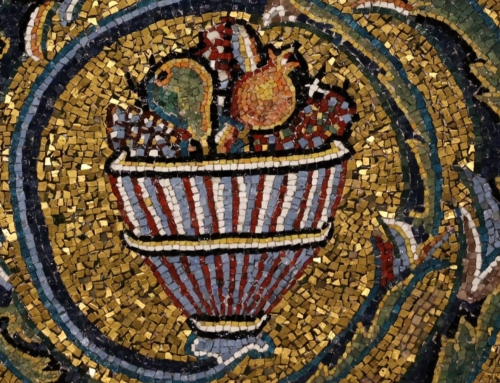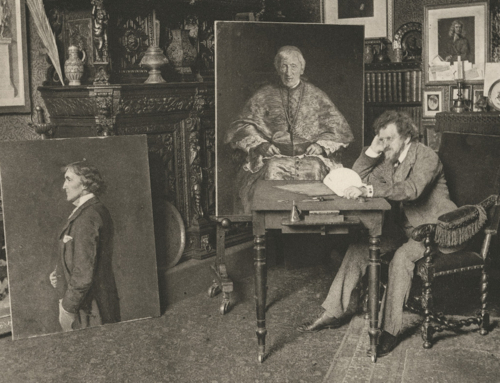Today, for the first time, we celebrate the memorial of St. John Paul II.
We remember this great man, canonized saint, and third-longest reigning pope in the history of the Church for his love, his joy, his wisdom, his leadership, and his holiness. While weathering many difficult storms, both personal and in his capacity as pope, St. John Paul found one solution to his problems and one answer to his questions: Jesus Christ.
From his first encyclical letter as pope, St. John Paul proclaimed that Jesus Christ is the way, the truth, and the life for man, for the Church, and for the world. In his preaching, his teaching, his writings, and his worldwide missionary travels, he pointed us again and again to Jesus Christ. Jesus was the message of his life.
Pope Francis and bishops from around the world were recently gathered in Rome for the Synod on the Family, and the Church and the world will ponder what the Synod has to say about the family and a range of related hot-button issues. Many people and media outlets desire to make their voices and opinions heard and desire that the Church listen to them.
The Church is certainly committed to dialogue with people of all backgrounds and viewpoints. Indeed, not only does the Church listen to the men and women of today; she also listens to the voices of men and women throughout history (see Chesterton’s “democracy of the dead”). Most importantly, she considers what the Holy Spirit has guided her to understand about men, women, marriage, and family in the teaching of her leaders and in her most outstanding examples of the Christian life, the saints.
However, today St. John Paul reminds us of the one voice we must listen to above all (Luke 10:42): the voice of Jesus Christ.
In the Gospel accounts of Jesus’ proclamation of the Good News, while many persons acknowledge that Jesus is a “good teacher” and one who “teaches with authority,” the apostles—who affirm with Peter that Jesus is the Christ (Mt 16:16)—are often shocked, amazed, and confused by Christ. We see this same reaction in people today, and sometimes in ourselves, when we hear the voice of Jesus propose to us what seems impossible.
✠
In Matthew 19 Jesus himself explains God’s plan for marriage, the foundation of the family, but his own hand-picked disciples find it so challenging that they consider that it may be better not to marry at all! Later in the same chapter, after teaching about the difficulty that wealth can pose to giving one’s life to God (“it is easier for a camel to pass through the eye of a needle…”), his disciples are again “greatly astonished” and wonder “who then can be saved?” Jesus’ reply is compassionate and understanding to the challenge we face when listening to him. “Indeed, for human beings this is impossible…” He acknowledges that our instinct, perhaps supported by the experience of our failure, is correct.
By ourselves, we face great difficulties in living God’s plan for marriage and cannot hope to obtain salvation. But then Jesus gives the key to the Good News: “But for God all things are possible.” We are called to a life beyond what we ourselves are capable of; but God himself makes it possible. The difficult becomes manageable or, sometimes, even easy; the impossible becomes possible.
Should we be surprised, then, that when the fullness of Jesus’ teachings are proclaimed by the Church today people, unaware that the God who calls us to the fullness of life is also the God who provides the necessary help, react with cries of “impossible,” “unrealistic,” and “out of touch with reality”? Jesus himself concedes that, by our own natural power, all too often, various aspects of his teaching are impossible and beyond us. In fact, while philosophical arguments can demonstrate by natural reason God’s existence and the truth of the Church’s teaching on sexual morality, this does not guarantee that a given person’s intellect, dimmed by original sin, will grasp these truths (see ST I q. 1 a. 1). Even more significantly, such arguments do nothing to remedy the challenging and discouraging situation of people who grasp these truths and recognize the way they are made to act according to their nature and yet who, try as they might, find that they are unable to live this way by their own power.
✠
As St. John Paul reminds us, the only solution is Jesus Christ. We absolutely need him. It is only in the light of Christ that we can know the full truth of our humanity, of marriage, and of the family. It is only by the power of his grace that we can live completely in accord with God’s plan, fulfilling our vocation to love. Any truth apart from Jesus is only partial, any way other than Christ is impotent, and without him no one enjoys the fullness of life on earth or the perfect happiness of eternal life (John 14:6).
May the Church, the Bride of Christ, continue to listen attentively to the voice of Jesus as she seeks to understand, live, and courageously proclaim the truth of God’s plan for the family and to help families throughout the world do the same, reminding them that with God, and only with God, all things are possible. Like St. Peter, who struggled with a “hard teaching” and even witnessed a number of Christ’s followers depart yet remained with Jesus, may we always listen to Jesus and confess in the midst of many competing voices, “Lord to whom shall we go? You have the words of eternal life” (John 6:68).
St. John Paul II, pray for us!
✠
Image: Fra Angelico, The Sermon on the Mount







